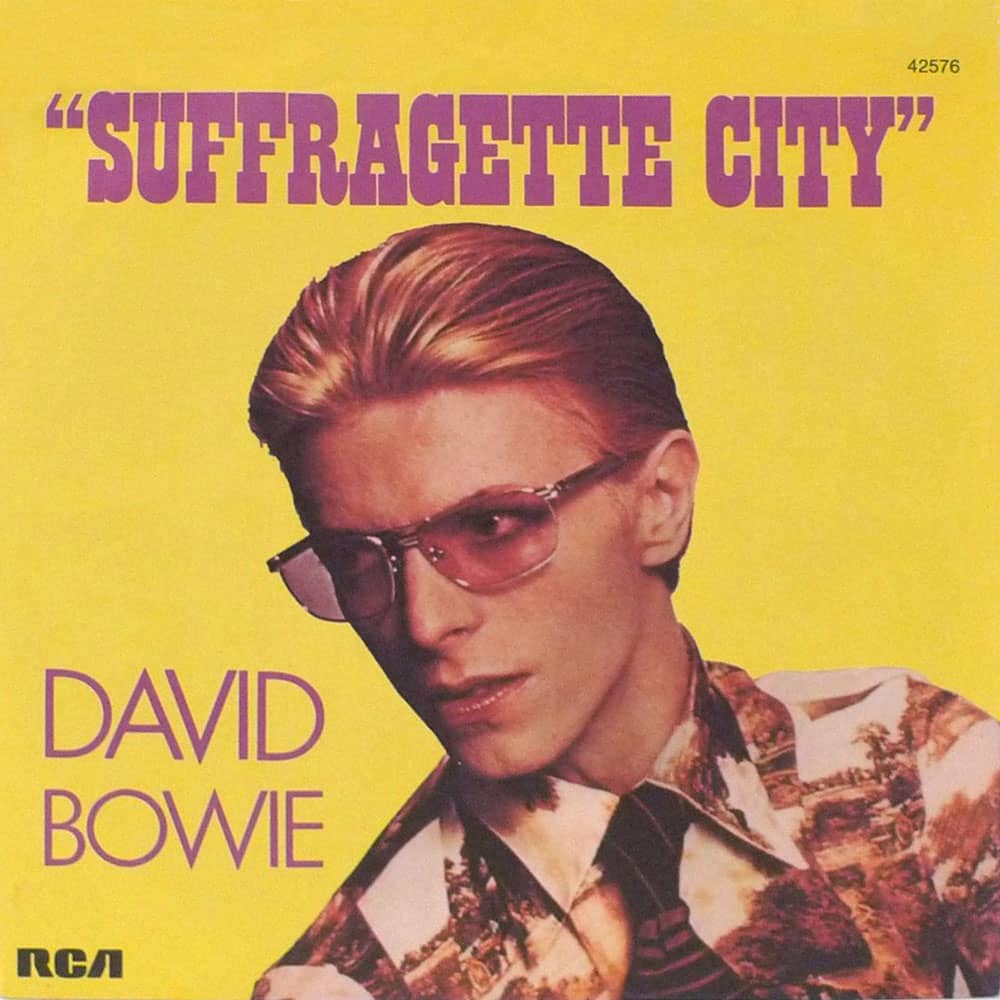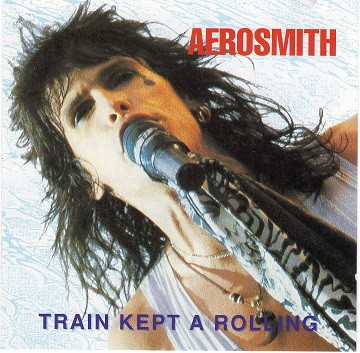 “Werewolves of London” by Warren Zevon is one of those strange songs that shouldn’t work, but does—brilliantly. It’s eerie, it’s absurd, it’s groovy, and it’s catchy in a way that embeds itself in your brain long after you’ve stopped spinning the record. Since its release in 1978, this offbeat track has taken on a life of its own, transforming from a quirky novelty into a permanent fixture in the rock canon. Zevon, known more for his sardonic lyrics and cult following than for mainstream superstardom, caught lightning in a bottle with “Werewolves of London.” This track is equal parts Halloween anthem, bar jukebox staple, and songwriter’s clinic in how to make the surreal seem effortless.
“Werewolves of London” by Warren Zevon is one of those strange songs that shouldn’t work, but does—brilliantly. It’s eerie, it’s absurd, it’s groovy, and it’s catchy in a way that embeds itself in your brain long after you’ve stopped spinning the record. Since its release in 1978, this offbeat track has taken on a life of its own, transforming from a quirky novelty into a permanent fixture in the rock canon. Zevon, known more for his sardonic lyrics and cult following than for mainstream superstardom, caught lightning in a bottle with “Werewolves of London.” This track is equal parts Halloween anthem, bar jukebox staple, and songwriter’s clinic in how to make the surreal seem effortless.
At its core, “Werewolves of London” is about mood. From the instantly recognizable piano riff—simple, repetitive, almost hypnotic—to Zevon’s deadpan vocal delivery, the song creates a spooky yet humorous atmosphere that’s unlike anything else from its era. The idea for the song was initially conceived as a joke between Zevon and his pals, including guitarist Waddy Wachtel and session bassist Leroy Marinell, who helped him flesh it out. It began as a throwaway suggestion: a rock song about werewolves. The concept was ludicrous, but Zevon ran with it, infusing his trademark sardonic wit and off-kilter poetry into the lyrics. What emerged was a song both wildly entertaining and deceptively complex.
The opening lines immediately set the tone: “I saw a werewolf with a Chinese menu in his hand / Walking through the streets of Soho in the rain.” It’s absurd, yes—but also vivid. Zevon paints a picture that’s just believable enough to be unsettling. The werewolf isn’t in some forest howling at the moon; he’s navigating London’s nightlife with the urban apathy of a jaded city dweller. It’s this blend of gothic horror and everyday mundanity that makes the song so unique. Instead of leaning on horror clichés, Zevon places his creature in a world of restaurants, barrooms, and high society, making the mythical somehow mundane.
Musically, “Werewolves of London” is a masterclass in restraint. The iconic piano riff, played by session legend Roy Bittan of Bruce Springsteen’s E Street Band, is minimal and repetitive, but it locks in with the rhythm section so tightly that it becomes the song’s gravitational center. The slide guitar work by Waddy Wachtel is equally crucial, adding a sense of tension and flair that elevates the song above its simple blues structure. The beat shuffles lazily, almost nonchalantly, allowing Zevon’s storytelling to shine without distraction. It’s the sonic equivalent of a half-drunken stroll through Soho at midnight, which is exactly the mood the lyrics evoke.
And then there’s the chorus—those unmistakable howls of “Awooooo, werewolves of London.” On paper, it sounds like a gimmick, a throwaway hook. But in context, it’s brilliant. It’s playful and memorable without being overbearing. It captures the absurdity of the song while still feeling totally at home within it. Those howls, likely the part most people remember, have echoed through sports arenas, Halloween parties, and dive bars for decades. It’s Zevon’s sense of timing and self-awareness that makes them work. He knew exactly how far to lean into the silliness without losing control of the song.
Zevon himself often walked a fine line between the serious and the absurd. Known for darkly comic songs like “Lawyers, Guns and Money” and “Excitable Boy,” he had a unique ability to tell stories that were at once shocking, hilarious, and strangely human. “Werewolves of London” might be his most accessible entry point for casual listeners, but it’s no less sharp or well-crafted than his deeper cuts. Behind the werewolf jokes lies an artist playing 4D chess with pop music conventions. While radio was full of disco grooves and punk energy in 1978, Zevon released a slow-burning blues-rock song about supernatural creatures in British nightlife—and somehow it climbed the charts.
The lyrics are full of surreal imagery and sly references. “You better stay away from him, he’ll rip your lungs out, Jim / I’d like to meet his tailor.” That last line encapsulates Zevon’s gift: taking something violent and absurd, then flipping it on its head with a bit of unexpected humor. The werewolf isn’t just dangerous—he’s fashionable. These lines don’t just add comic relief; they build character. The creature isn’t a mindless monster. He’s part dandy, part killer, part myth. It’s a feat of writing that takes the grotesque and makes it oddly charismatic.
Even the geographical references are oddly specific. Soho. Trader Vic’s. Lon Chaney and his son. It gives the song a strange kind of realism. It feels grounded in actual places and people, even as it floats in the realm of fantasy. That’s a big part of why it has endured. You can sing along and laugh, but you also find yourself imagining the movie version of it in your head. It’s world-building through lyricism, and Zevon does it with a wink and a growl.
Commercially, “Werewolves of London” became Zevon’s biggest hit. It reached number 21 on the Billboard Hot 100—not a massive smash, but far more mainstream attention than he typically received. For some artists, that would’ve launched a different kind of career. But Zevon remained Zevon, never chasing the Top 40 again. In fact, he had a complicated relationship with the song’s success. He often joked that it was his “dumbest” song, and some fans worried it pigeonholed him as a novelty act. But over time, the song has shed any stigma. It’s now seen as a gateway to his catalog, a song that lures people in with its humor and hooks, then nudges them toward his more nuanced work.
Zevon’s performance of “Werewolves of London” on The Late Show with David Letterman remains one of the most memorable late-night moments in rock history. Stripped of its studio gloss, the song still held up. The charm was in Zevon’s delivery—dry, ironic, and magnetic. When he was later diagnosed with terminal cancer, his farewell appearances on Letterman included the song, now steeped in more meaning. The werewolf had become a symbol of Zevon’s enduring presence, snarling and smirking even in the face of mortality.
The cultural afterlife of “Werewolves of London” is staggering. It has appeared in dozens of movies and TV shows, including The Color of Money, The Sopranos, and Teen Wolf. It has also been sampled, most famously by Kid Rock in his 2008 hit “All Summer Long,” which blended Zevon’s piano riff with Lynyrd Skynyrd’s “Sweet Home Alabama.” That track sparked a wave of renewed interest in Zevon’s original and introduced his work to a new generation. While some purists balked at the mashup, others saw it as a sign of the song’s immortality. Few rock tracks from the late ’70s have enjoyed such an enduring second wind.
There’s also something timelessly seasonal about the song. Every October, it reemerges as an unofficial Halloween anthem, despite not being explicitly about the holiday. It’s the atmosphere that matters. The werewolf, the full moon, the eerie howl—it all aligns perfectly with the spooky season. And yet, it’s not kitschy or campy. Unlike novelty tracks like “Monster Mash,” Zevon’s creation maintains a sense of cool, of danger, of subversion. It’s a song you can wear like a black leather jacket—playful but still sharp-edged.
“Werewolves of London” also occupies a unique place in the lineage of storytelling rock songs. It belongs on a playlist with tracks like Bob Dylan’s “Subterranean Homesick Blues,” Tom Waits’ “Step Right Up,” or Lou Reed’s “Walk on the Wild Side.” These are songs that build characters, paint scenes, and guide listeners through eccentric little worlds. Zevon may have gone zanier with the concept, but the craftsmanship is just as strong. Every line adds a layer. Every verse deepens the mythology.
And of course, the song has outlived Warren Zevon himself. Since his death in 2003, his work has undergone a reevaluation. No longer seen as just a clever cult figure, he’s increasingly regarded as one of rock’s most underrated songwriters. Bruce Springsteen, Bob Dylan, and Jackson Browne have all praised him. David Letterman once called him the greatest guest his show ever had. “Werewolves of London” was his most famous track, but now it’s seen as just the beginning of a much deeper discography worth exploring.
But even if someone never dives further into Zevon’s catalog, this song alone cements his genius. It’s deceptively simple, instantly recognizable, and endlessly fun. And beneath all the absurdity, it hints at something more profound: the monsters we carry with us, the absurdity of modern life, the strange intersection of humor and horror. It’s a song that sneaks up on you—like a werewolf in Soho—charming, dangerous, unforgettable.
“Werewolves of London” is more than just a quirky radio hit. It’s a cultural touchstone, a songwriting gem, and a howling reminder that music can be smart and silly at the same time. Warren Zevon didn’t just write about a werewolf—he created a myth, a vibe, and a legacy that continues to echo under the full moon. Awooooo.


